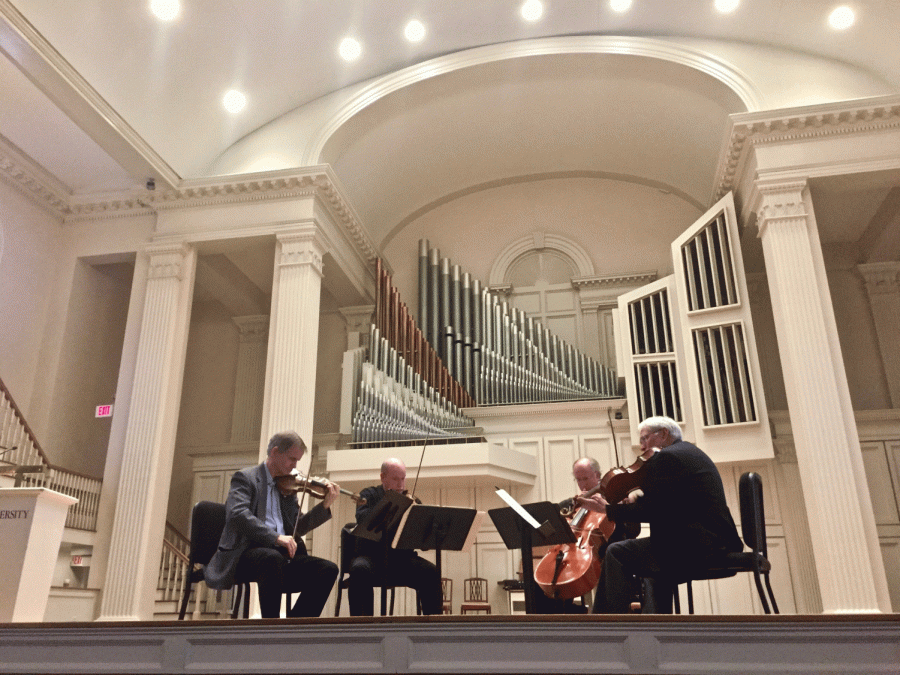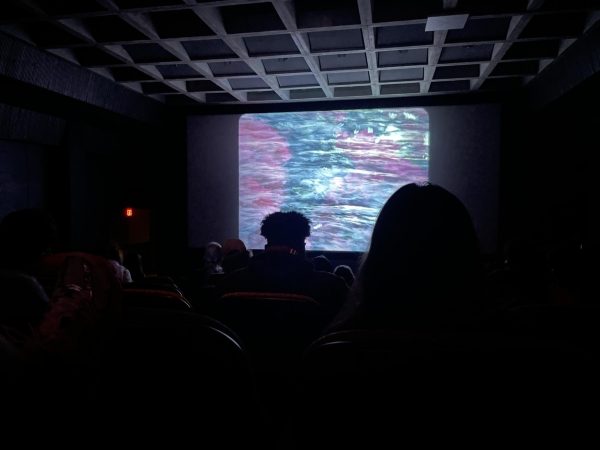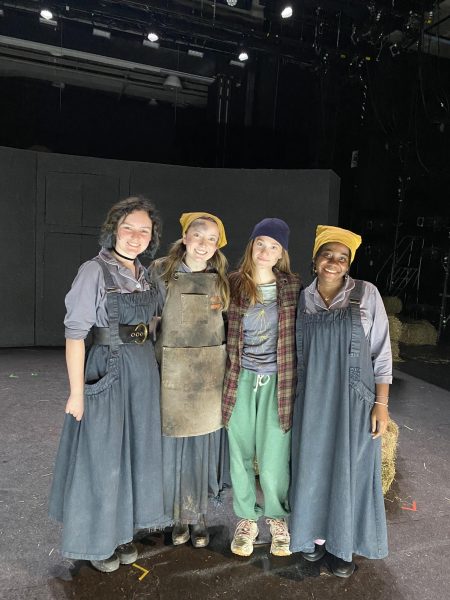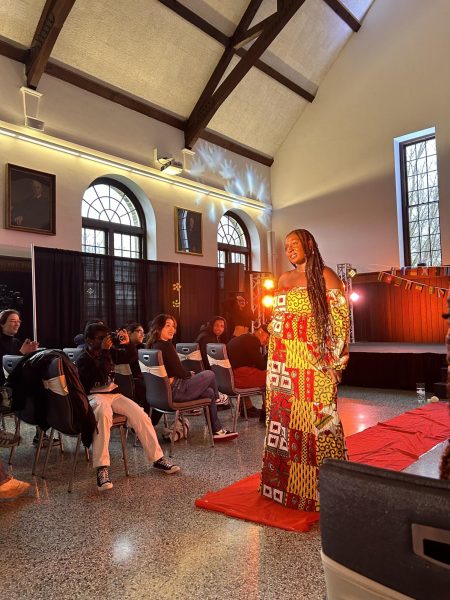The Manhattan String Quartet Returns to Campus in Full Form
Thursday, March 30 and Friday, March 31, the Manhattan String Quartet visited campus. During their time at Colgate, they collaborated in a lecture and performance with Visting Assistant Professor of Music Ryan Chase, held workshops for Core 152: Challenges of Modernity students and performed for the public Friday evening. The quartet accompanied Chase’s lecture by playing parts from each composition that was discussed. Their demonstrations continued to impact students in their workshops, where members of the quartet elucidated how music poignantly records moments in history. Their visit culminated in a concert Friday evening that featured Beethoven’s String Quartet No. 5 in A Major, Op. 18 and a new quartet by Steve Ricks.
The workshops held on Thursday and Friday were led by members of the quartet, Curtis Macomber and Calvin Wiersma who play violin, John Dexter on viola and Chris Finckel on cello. The sessions were hands-on and designed to give students an understanding and appreciation for composers and how their work has reflected and shaped society. Wiersma began the workshop I participated in by encouraging group discussion of music leading up to the 19th century. He pointed out how music before the reformation was paid for by wealthy aristocracy, so it was intended to make listeners feel content rather than encourage contemplation and perhaps foment revolution. Compositions of the time period are very symmetrical, questions asked are answered and every consonance is followed by a dissonance. Consequently, the music has a satisfying effect on listeners. During the period between 1776 to 1791, composers looked for new ways to be expressive in light of political revolutions.
“I don’t know very much about music, so I found the theory about it really interesting, and I thought the performance itself was a lot different from most classical music that I’ve heard,” first-year Ally DePuyt said.
Chase reflected on the impact and significance of music in the romantic and classical periods. The Manhattan String Quartet demonstrated exactly how the differences in tempo, volume and even method of playing in a variety of works can create startlingly unique sounds. In the workshops, students revisited this reality in a new way. Workshop participants were each given sheet music and a selection of random words. We all had to rearrange the words in an order of our choosing. The variety of patterns that resulted demonstrated how language is limited by a specific logic, but if you look at words as merely different combinations of sounds, the possibilities of expression are exhaustive.
“The fantastic tonal landscape created by the Manhattan String Quartet very much intrigued me in ways that music hasn’t before. I liked seeing how the different sounds come out and interact with each other,” first-year Peter Hager said.
The Manhattan String Quartet has partnered with Colgate for the past nine years. They perform on campus periodically and hold workshops so all students have the opportunity to experience a quartet up close. Their involvement with the university has encouraged a deeper understanding of music that many individuals express appreciation for.
“We feel a little bit like it’s a second home for us. It’s different than playing in a regular sort of concert where you go in and out and you don’t really see these people again. We’ve played so many concerts in this chapel, it feels very comfortable,” Wiersma said.








